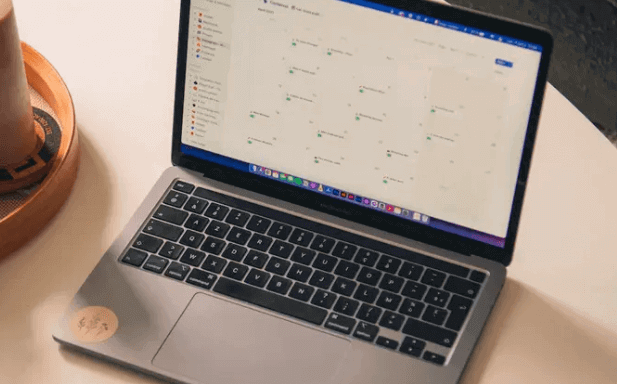Discover the latest insights into the App Store search ranking algorithm and learn how ASO (App Store Optimization) can improve your app's visibility and downloads. Explore 7 direct and 5 indirect factors influencing rankings, with actionable tips for success.
Did you know that most people discover your app through browsing or searching the App Store? According to Apple, App Store searches drive 65% of all app downloads. Thus, ensuring your app ranks high in search results is critical for increasing downloads.
So, how can you rank higher in App Store search results? The App Store search ranking algorithm determines your app's position in the search results.
In this article, we’ll unveil the latest App Store search ranking algorithm and explore how ASO (App Store Optimization) can help improve your app’s search ranking and visibility.

I. 7 Direct Factors Influencing App Store Search Rankings
In 2019, Apple revealed during an antitrust investigation that it uses 42 factors to determine app rankings in search results. However, Apple deliberately obscures the algorithm details to prevent manipulation.
While we don’t know all 42 factors, ASO experts have identified key elements that influence rankings through years of observation and experience. These factors include app name, keyword list, screenshots, reviews, and downloads.
Here are the 7 most critical factors that directly affect your app’s search rankings:
1. App Name
The app name is one of the most important ranking factors since keywords in the name carry the highest ranking weight. The App Store allows a maximum of 30 characters for app names.
Best Practices:
Use your brand name along with essential keywords in the app name.
Include keywords that exactly match common user searches to achieve higher rankings.
2. Subtitle
The subtitle is the second most important spot for keyword optimization, just below the app name. It serves as a supplementary field to convey your app’s message and improve rankings.
Best Practices:
Use primary keywords in the subtitle that complement the app name.
Avoid repeating keywords already used in the app name or keyword list, as duplicates won’t improve rankings.
3. Keywords
Apple provides a dedicated field in App Store Connect for keyword input, limited to 100 characters. Keywords are a critical part of your ASO strategy.
Tips for Keyword Optimization:
Use “grouping” to combine related words. For instance, combine “Google Maps” and “Baidu Maps” into “Google Baidu Maps” to maximize space.
Avoid repeating keywords already included in the app name or subtitle.
Include brand, industry, competitor, and other relevant terms.
Pro Tip: When targeting competitors, hide their brand terms in the keyword field rather than overtly using them in visible app metadata.
4. Keyword Installs
If many users search for a specific keyword and download your app, the algorithm perceives your app as highly relevant to that keyword, boosting its ranking.
While unethical practices like “incentivized installs” (e.g., download bots) are used by some developers to exploit this factor, such tactics are risky and discouraged.
5. Developer Name
Apps under the same developer account often benefit from each other’s visibility. For instance, searching for “Microsoft Word” also highlights “Microsoft Excel” and “Microsoft PowerPoint.”
Best Practices:
Publish new apps under existing, reputable developer accounts to leverage their visibility.
6. Ratings and Reviews
Apple has stated that ratings and reviews impact search rankings and encourage users to try your app.
Tips for Better Ratings:
Prompt users to rate your app after positive interactions using the SK Store Review Controller API.
Offer stellar customer support to avoid negative reviews.
Focus on gaining high ratings (4.5+ stars) from a broad user base.
7. Downloads and Retention
High download volumes and strong retention rates significantly boost rankings. Collaborate closely with user growth teams to align marketing efforts with ASO strategies for optimal results.
II. 5 Indirect Factors Influencing App Store Search Rankings
1. Visual Appeal on Product Pages
First impressions matter! High-quality app icons, screenshots, and videos improve conversion rates, leading to higher rankings.
2. App Description
While descriptions don’t directly impact rankings, they influence conversion rates. Use concise, engaging language to highlight your app’s unique features and benefits.
3. Promotional Text
The 170-character promotional text field can be updated anytime to share updates, promotions, or upcoming features. It’s a great way to engage users without needing an app update.
4. In-App Purchases
In-app purchase items appear in search results and can drive visibility. Name them effectively, with a maximum of 30 characters for titles and 45 characters for descriptions.
5. App Updates
Regular updates fix bugs, introduce new features, and remind users to re-engage with your app, indirectly improving rankings through higher usage.
Conclusion
By mastering and continuously optimizing the 7 direct and 5 indirect factors affecting App Store search rankings, you can steadily improve your app’s visibility and keyword rankings.
Ultimately, your app or game needs to offer unique value to its users. If it meets their needs effectively, positive reviews and organic downloads will naturally follow. 💡
![15 Effective Ways to Increase App Downloads for Overseas Markets [With Case Studies]](/static/upload/image/20241230/1735570252211470.jpg)






